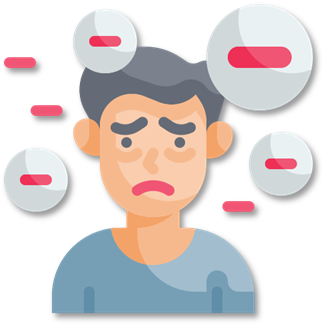Step 3: Effects
| Topic | Question | Answer |
Positive consequences | Which positive effects are expected from the AI-functions - to the performance of the actors who work with the AI (e.g., accuracy, speed, ...)? - to the state of them (e.g., stress, understanding, trust, ...)? The AI functions would give the patient a better sense of autonomy
the performance of the relatives: they have to assist their relative with dementia less | |
Negative consequences | Do you foresee potential negative effects of the AI-functions: - on the performance, state and/or values of the actors? - on more general ethical or societal aspects? What are they?
| |
Impact on use-case | What is the impact of the AI functions on the overall use case? What does it add to the use case/how does it improve the use case as a whole? The AI functions should be helping the patient be more ‘self-reliant’. They feel better prepared and less stressed.
|



